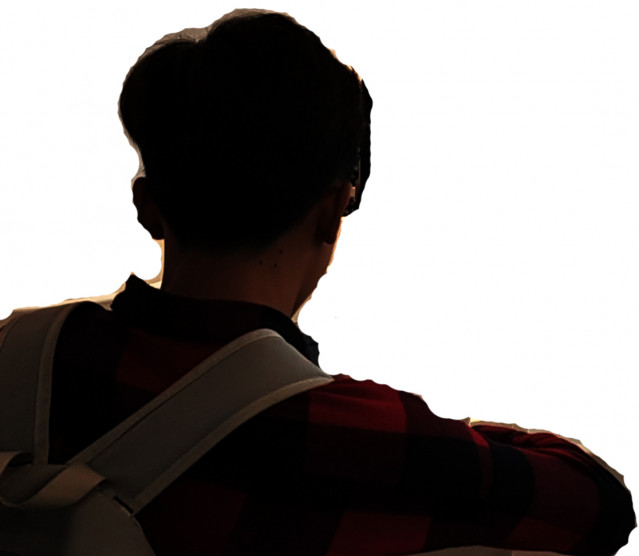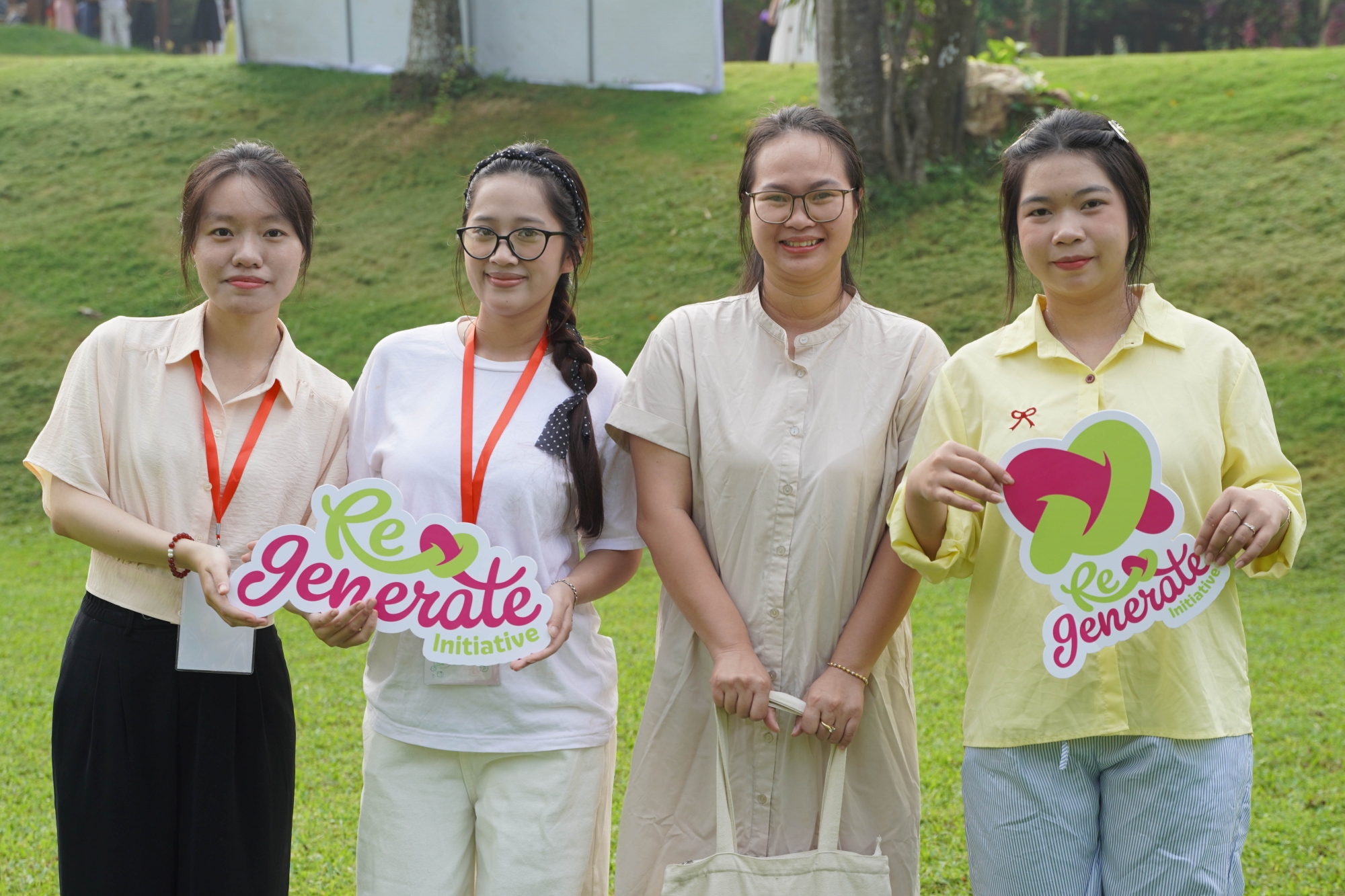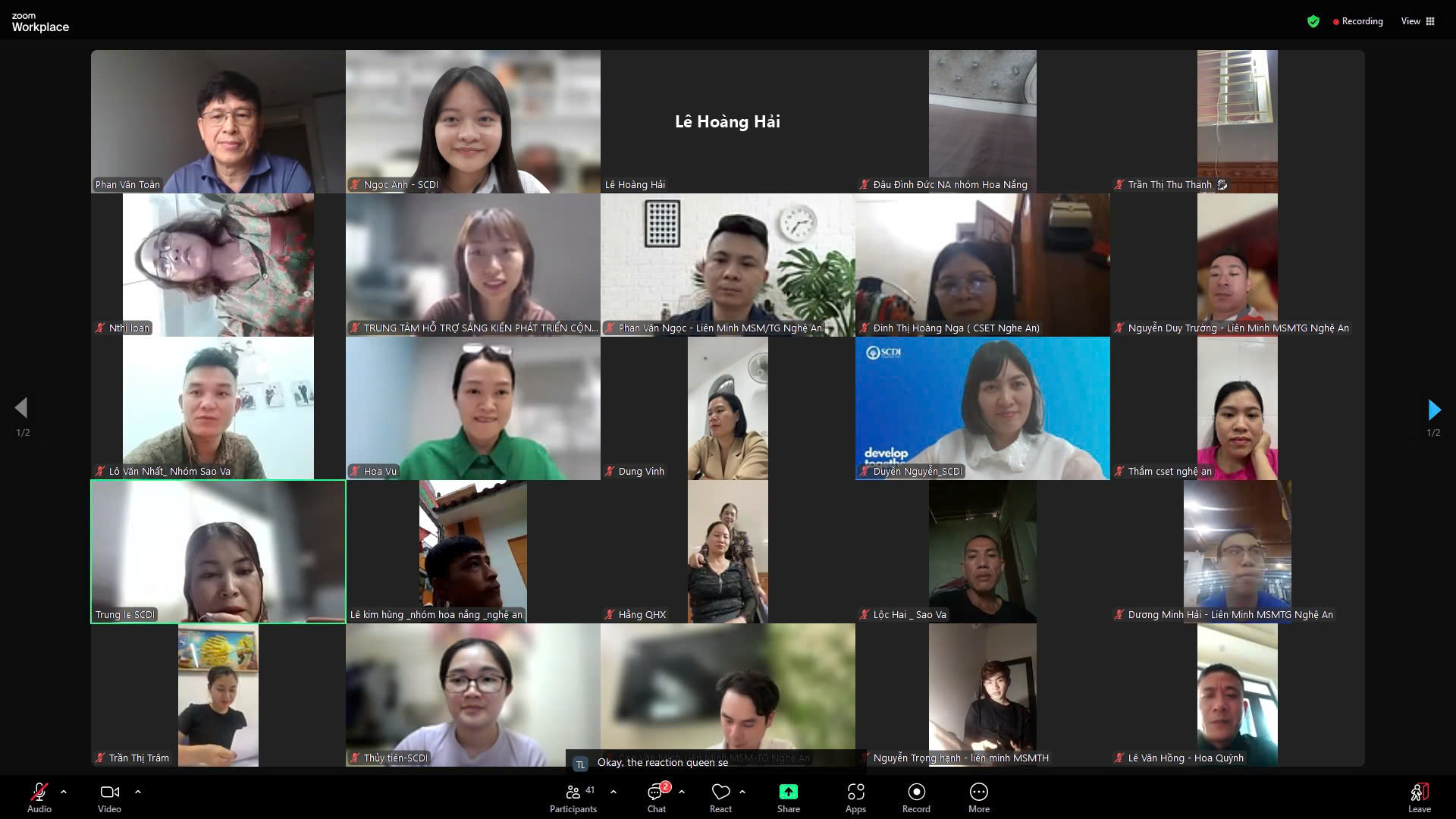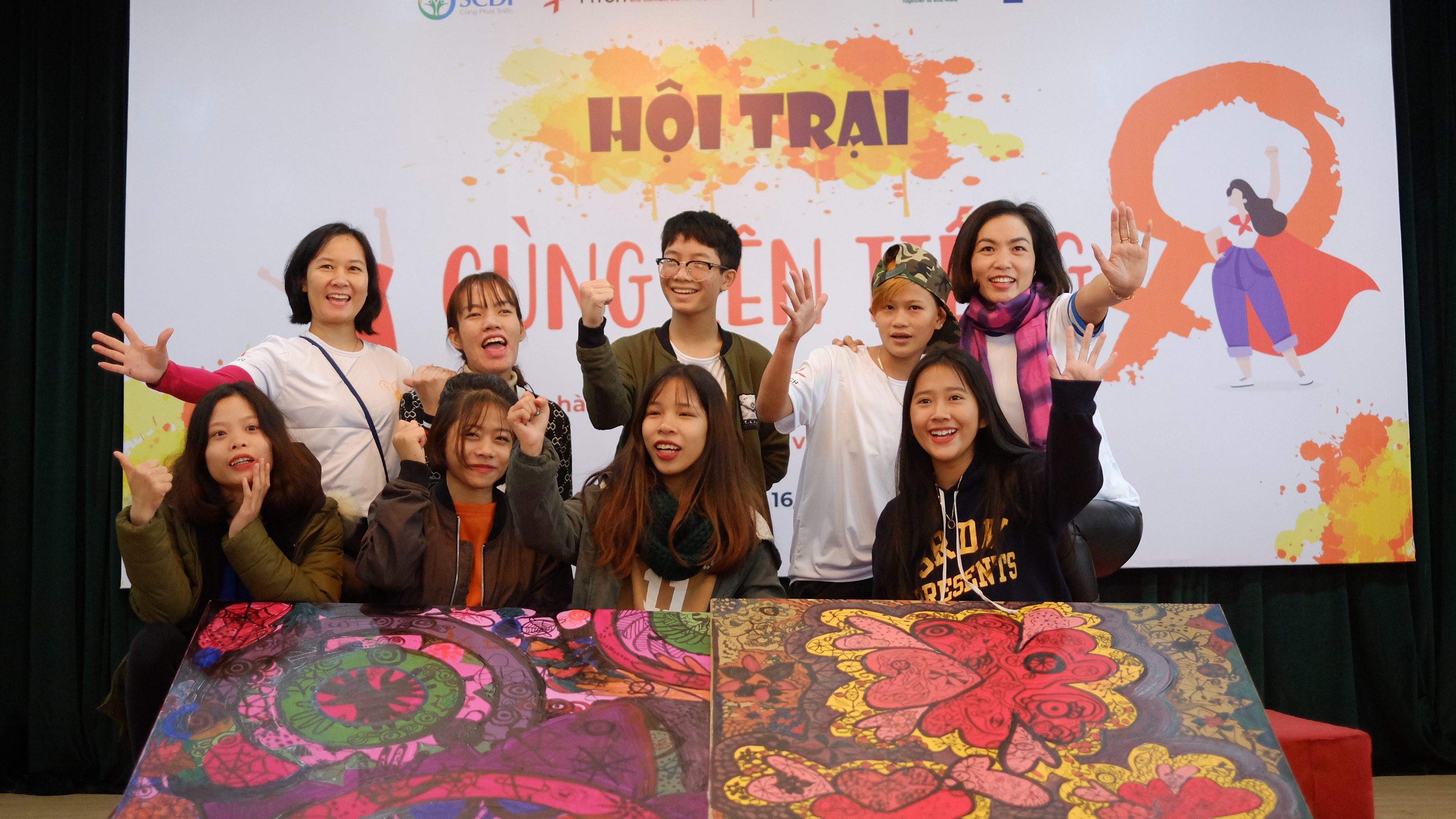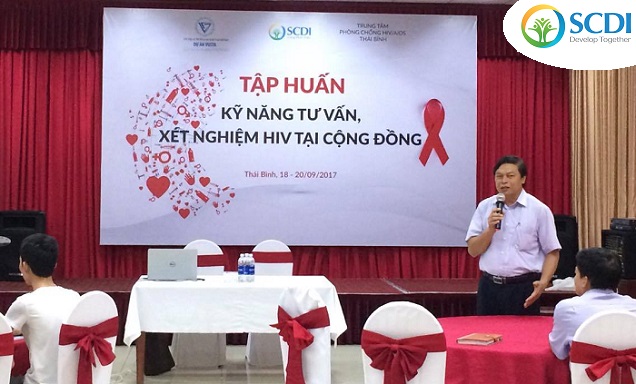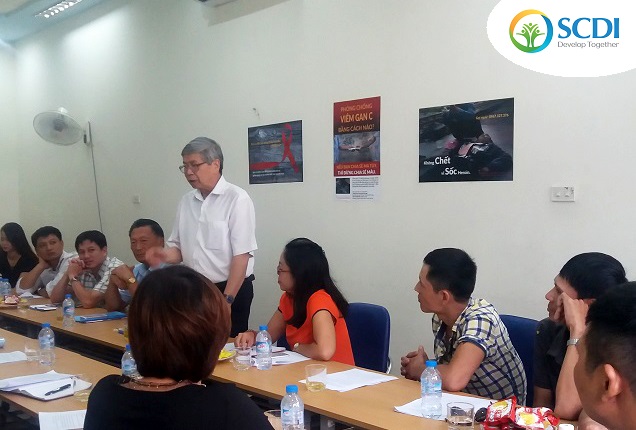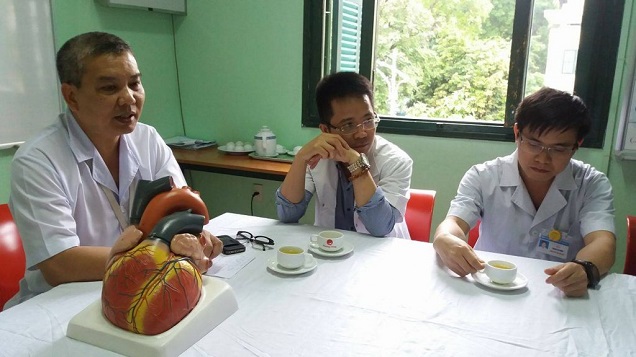“Children are inherently vulnerable but the children living with HIV even have to face the scrutiny and stigmas at where they live, study and even the healthcare facilities”, many children infected with HIV bitterly exclaimed.
Heartbreaking sharing
Though Đ.N (Hai Phong) is just 16 years old, she looks more mature than her age. N. shared that she had just been through an acutely psychological shock when switching from the pediatric clinic to adult one.
“I have no longer felt cared as before. Now it just takes 5 minutes for the thorough process. Previously, I was instructed and consulted step by step at pediatric clinic. The doctors even gave me their phone number to call directly in case of urgent situation. Since moving to the adult clinic, I don’t know what to do when I’m in need. I want to care about my health but this reality just doesn’t let me do that”, N exclaimed.
Đ.N (Hai Phong) “The lack of empathy and consideration from other people made her feel hurtful and N hope that the health facility could adjust their attitude toward patients living with HIV”. Photo: A.H
N. also shared that when she came to see doctors at adult clinic, they just prescribed and gave medicines, yet no one cared about if she had any sideeffects. The lack of empathy and consideration made her feel hurtful and N hope that the health facility could adjust their attitude toward patients living with HIV.
N.’s sharing touched many people’s hearts. When N. was about 4-5 years old while almost all other kids were care-free, she found herself infected with HIV and discriminated by surrounding people. “At that time, I knew that I was stigmatized not due to my disease but because my parents were drug users.”
As a little kid, N. had to withdraw in her own shell to turn her deaf ears to people’s murmurs. That is the reason why N. just felt a little shocked when she found herself being infected with HIV. But being isolated and abandoned in loneliness makes her plough in using drug to forget bitter reality.
“If I had been under better treatment regimen, my HIV viral load would have decreased below the detection threshold and been unlikely to be infectious. Yet, I was just a kid who were receptive to crisis and depression when I was dismissed” N. said. There were times when N. Quit the ARV treatment for nearly 6 months (while in fact, according to treatment regimen, those who has HIV have to take medicine regularly everyday. Consequently, N. partially lost her vision which makes it difficult for her to walk.
“The health care clinic is in the same residential area that I live in, so whenever I go there, I heard people murmuring and whispering the questions like ‘How can a young girl like me have HIV at this age?’... Those things make me feel so sad. I hope that parents should stand by their children and care more about them because the discrimination now and then from inside the house, not to mention society, has a huge impact on children’s psychology.”
Huge barrier in adherence to HIV treatment
Children are inherently vulnerable but the children who living with HIV even have to face the scrutiny and stigmas at where they live, study and even the health care facilities.
In fact, many children infected with HIV since childhood do not know about their status and just take medicine at the request of their parents and are not psychologically prepared for their disease. As children grow up, they will get into two common situations: Either not being fully aware of the importance of adherence to treatment leading to drop-out or improperly taking the medicine which lead to cause various health complications and high level risks of drug resistance.
Another case is that children would feel shocked when they know about their status and feel disgusted with their parents and themselves, which leads to negative actions like leaving home, using drugs, having unsafe sexual behaviors, being unexpectedly pregnant and many other regretful consequences. More seriously, they would quit ARV treatment for the long time, which is greatly challenging to get them back to treatment.
N.T (B. 2000, Dong Anh, Ha Noi) first time shared his thought and stories about children having HIV: Many children haven’t known about their status and how to take medicine properly on regular basis because their parent try to hide problems with the thought that “to let them have happy childhood like other friends”. In fact, this harms the children rather than good because they have not yet known about their HIV status while friends and everyone around have already known about it and shown their estrangement. Then when they found out about their status, they would hold grudge towards their parents.
Since pre-school and primary school, T has been subjected to huge impacts from society. T even didn’t understand why he was forbidden to go to school. At that time, he sensed vaguely that there were something wrong with him. “If having been psychologically prepared from early age, children could have more easily accepted the truth and actively collaborated in the treatment. There would be no longer the circumstance of hatred, leaving home and trying out to use drugs, being rebellious or even attempting to commit suicide like many other adolescents did when they found out their disease.”
Despite accepting their status and being ready to get treatments, children having HIV would still face difficulties to comply with treatments when they enter adolescence. “When enrolling in schools and some training centers, we couldn’t naturally put out the pills and take medicine in front of our classmates because we’re afraid of curiosity and stigma. Hence, the forgetting to take medicines on time occurred frequently. When they start to have feeling of love, they are more likely to dropping treatment due to mood swings at that age.” said a young boy from Hanoi.
“If having been psychologically prepared earlier, children could have easily accepted the truth and actively collaborated to get treatment. There would be no longer the circumstance of hatred, leaving home and trying out to use drugs, being rebellious or even attempting to commit suicide like many other adolescents did when they found out their diseases” said N.T. Photo - A.H
Only 50% of children living with HIV get ARV treatment
It’s estimated that there are about 31.1 to 43.9 million people living with HIV and 75% know their status condition. The number of children under the age of 15 infected with HIV is 1.8 million. By the end of 2017, Vietnam has about 4,.400 to 6,.600 children under the age of 15 living with HIV. Globally, it’s estimated that there are just 50% of children living with HIV have received treatment, leaving a considerable gap in preventing HIV/AIDS
These figures were shared at the seminar on “Sharing experiences of the community living with HIV in complying with treatment”, organized by SCDI to celebrate the World AIDS Day (December 1st) on 1/12/2018 in Hanoi.
Doctor Kieu Thi Mai Hương, Manager of Health Program in SCDI said that through her experience of working with groups supporting HIV-infected children, she has seen a sad phenomenon - there is an alarming rate of HIV-infected children quit their treatment when they move to adolescence.”
According to doctors, adherence to HIV treatment is already difficult for adults, it would be far more challenging when it comes to children. As it will require more concern and thorough psychology preparation before moving to the whole new phase of their life, and this needs the society to join hands.
Mrs. Hai Anh (Ban Mai group, Hanoi) emphasized on the necessity of not only the support from family but also psychological solution to parents as well. Many parents try to protect their children by hiding the situation but in fact, this may lead to the risk of not complying to treatment, drug resistance, etc. This remains one of the greatest barriers.

